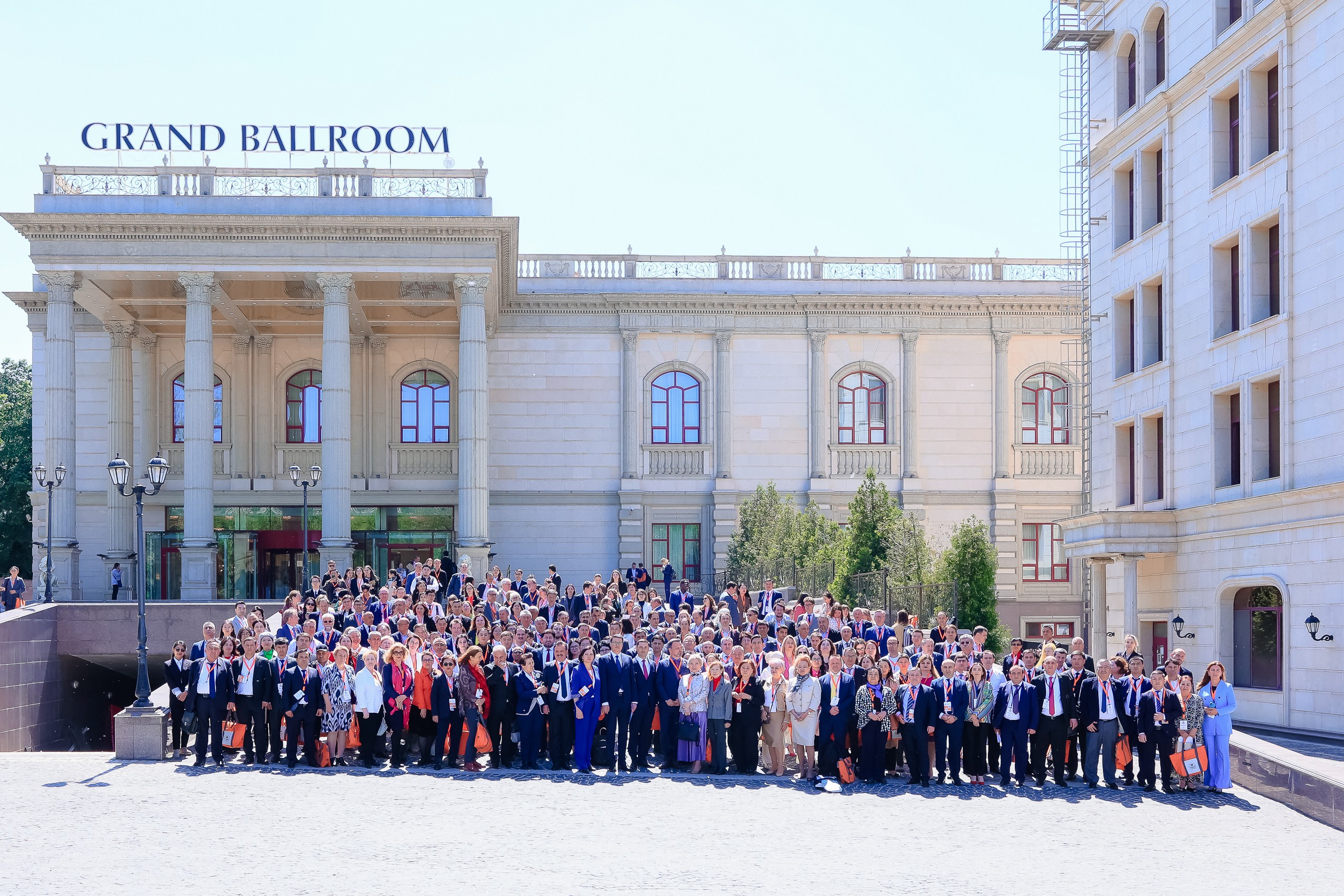On May 29, 2024, the Central Asian Climate Change Conference (CACCC-2024) in Almaty, Kazakhstan concluded.
The Conference lasted three days and was devoted to issues of sustainable water and land management, energy, food security and environmental sustainability in the context of climate change.
It convened representatives of national governments, international organizations, civil society, academia and youth of Central Asian countries.
According to Zafar Makhmudov, Executive Director of the Regional Environmental Centre for Central Asia (CAREC), panel and parallel sessions were devoted to discussion of building resilience to natural disasters, implementing a climate change adaptation strategy, decarbonization and multisectoral cooperation.
“We also discussed the importance of attracting investment, developing green innovation and ensuring fiscal and financial sustainability. We paid particular attention to the issues of climate and circular economy connection, urban greening, ecosystem restoration and many other aspects that are critical for the sustainable development of our region,” Zafar Makhmudov said.
During CACCC-2024, three regional memorandums of cooperation were signed:
– between CAREC and the Executive Committee of IFAS;
– between CAREC and the Center for Emergency Situations and Disaster Risk Reduction;
– Memorandum on joint work in promoting the Concept of the Central Asian Green Tech Climate Hub between the REC Green Academy and the University of Central Asia.
Paola Agostini, Lead Natural Resources Management Specialist at the World Bank, stressed the need to close the climate finance gap in Central Asian countries, paying attention not only to the public sector but also to the private sector, taking into account the new financial instruments (green microfinance, insurance, etc.) that discussed during the Conference.
Torsten Brezina, Cluster Coordinator Regional Programmes Central Asia, GIZ, noted the importance of regional cooperation. He said that some Central Asian countries offer excellent initiatives, for example, initiatives on mountain and water resources. Torsten Brezina recommended implementing these initiatives in a regional context, uniting the region even more and expressed hope that the Central Asian region will be heard in the international climate arena.
Svetlana Mogiluk, Central Asian Civil Society Climate Network Regional Coordinator, Chair of Kazakhstan’s Eco Forum, stressed the importance of involving civil society and youth in the decision-making process. She believes that the public should be included in the process of developing a roadmap for the Regional Strategy for Adaptation to Climate Change in Central Asia.
At the end of CACCC-2024, the participants adopted the Declaration of the Central Asia Climate Change Conference “Bridging Climate Goals with Action: Making Ambitions a Reality”.
In the Declaration, they support the strengthening of regional cooperation of the Central Asian countries, the preparation of more ambitious Nationally Determined Contributions (NDCs) of the Paris Agreement by 2025, which take into account the high climate vulnerability of the Central Asian countries, ecosystem approaches, the transition to carbon neutrality, gender aspects, the involvement of the private sector, civil society and youth.
Zafar Makhmudov, the CAREC Executive Director, noted that CACCC-2024 once again emphasized the importance of regional cooperation, and this topic ran through the entire Conference.
Concluding CACCC-2024, the CAREC Executive Director expressed his appreciation and gratitude to all partners involved in the organization of the Conference.

The Central Asia Climate Change Conference (CACCC-2024) is organized by the Regional Environmental Centre for Central Asia (CAREC) within the “Climate Adaptation and Mitigation Program in the Aral Sea Basin AF” (CAMP4ASB AF), Central Asia Water and Energy Program (CAWEP), and Deutsche Gesellschaft für Internationale Zusammenarbeit (GIZ) GmbH, in cooperation with The Global Partnership for Sustainable and Resilient Landscapes (PROGREEN), NDC Partnership (NDCP), Coalition for Capacity on Climate Action (C3A), Asia Development Bank (ADB), Asia Development Institute (ADBI), International Organization for Migration (IOM), International Federation of Red Cross and Red Crescent Societies (IFRC), SWITCH-Asia— a programme funded by the European Union, the Kazakh-German University (DKU), Green Academy along with valuable support provided from other partners.
The CAMP4ASB AF project is implemented by CAREC together with EC IFAS with the financial support of the World Bank and the Green Climate Fund.
The Central Asia Water and Energy Program (CAWEP) is a partnership between the World Bank, the European Union, Switzerland, and the United Kingdom aimed at creating conditions for improving water and energy security at the regional level and in beneficiary countries in a changing climate.
For more information, please contact Irina Bekmirzaeva, Climate Change and Sustainable Energy Programme Manager/CAMP4ASB Project Coordinator, at ibekmirzaeva@carececo.org

